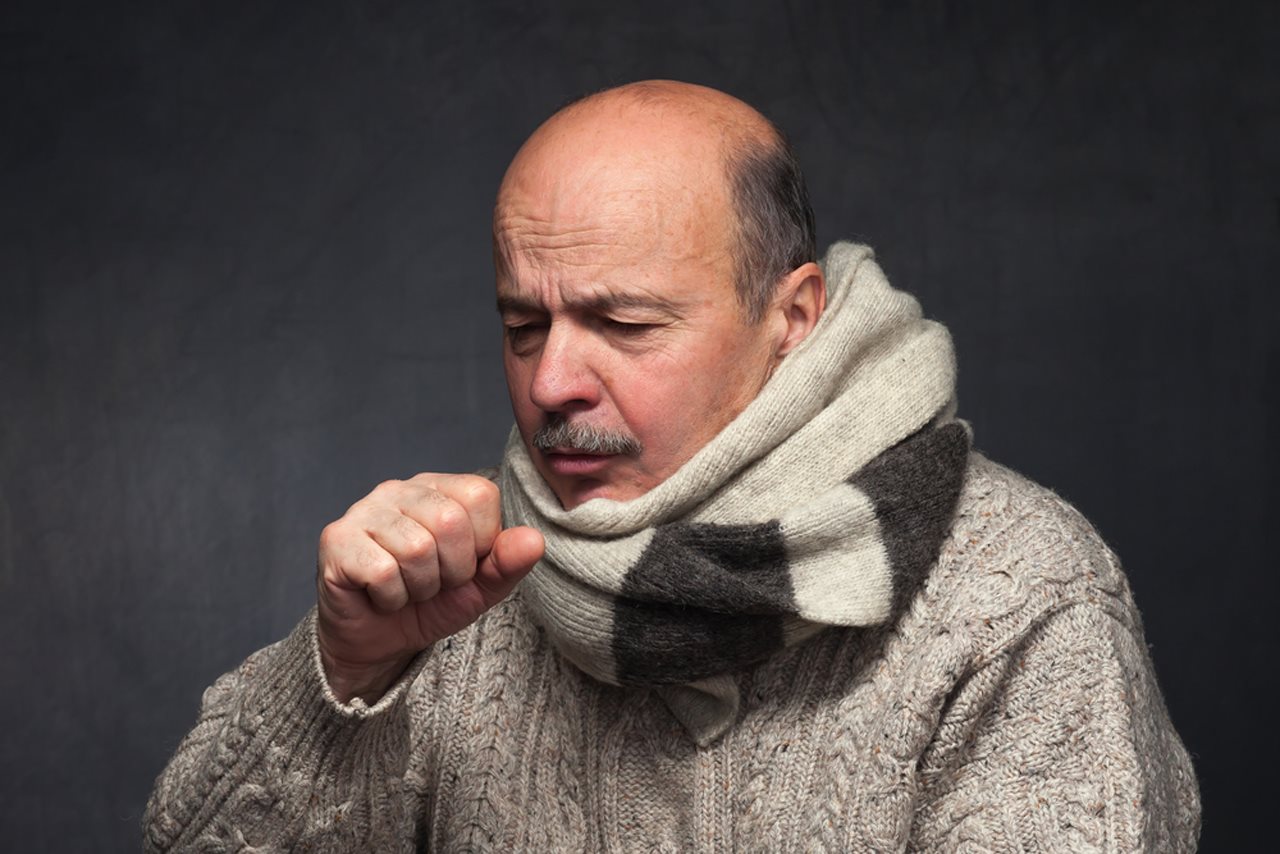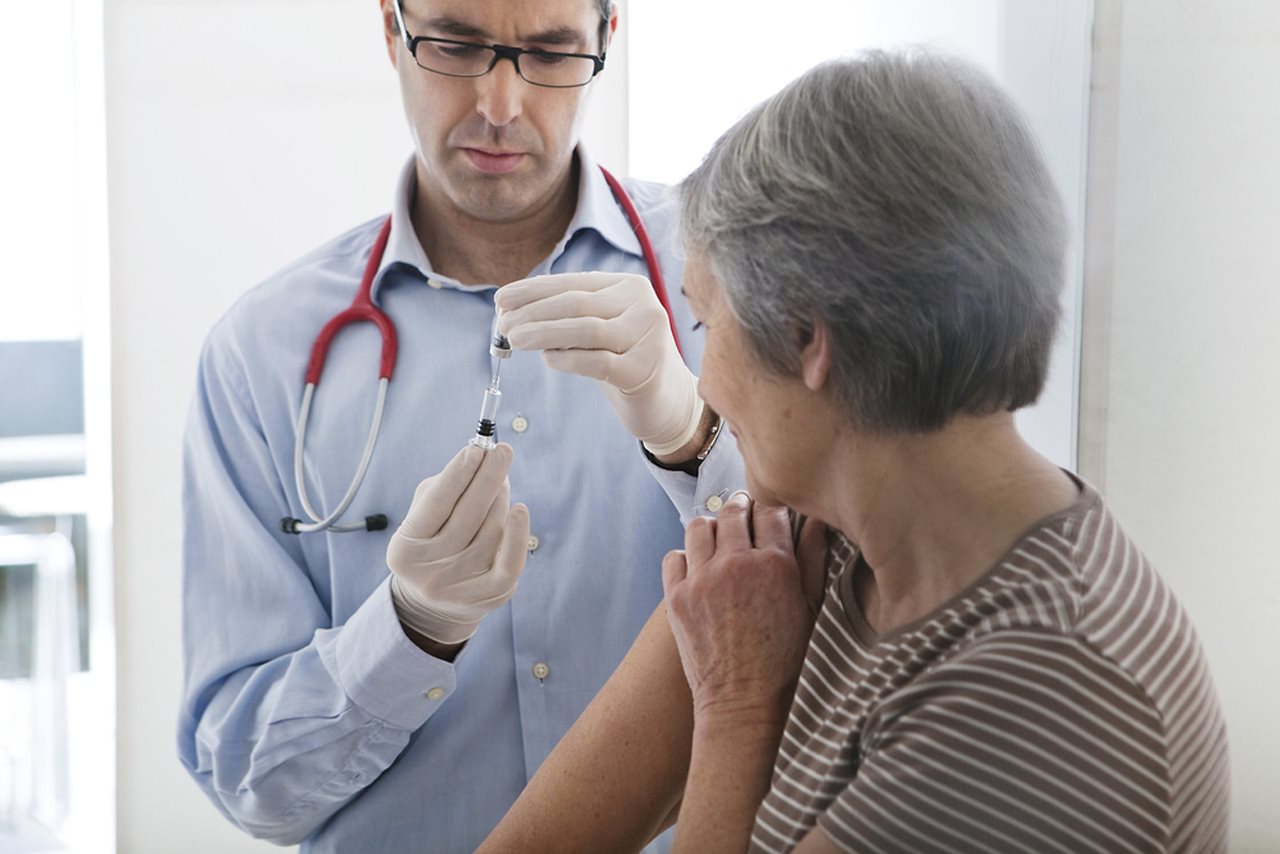2018-04-23T16:15:00

Pneumococcal pneumonia is a serious and, in some cases, potentially life-threatening illness that can strike at any time. If you are 65 or older, your risk of being hospitalized after getting pneumococcal pneumonia is 13 times greater than younger adults aged 18-49,4 which is why it’s important to understand your personal risk of vaccine-preventable diseases if you are 65 and older.
2. Immunization can help prevent certain infectious diseases that could disrupt your daily routine, such as pneumococcal pneumonia. Some of the physical effects of pneumococcal pneumonia can be felt for weeks, taking you out of your routine of doing the things you love or in serious cases, landing you in the hospital.3 Pneumococcal pneumonia is not a cold or flu. It is a potentially serious, bacterial lung disease. Symptoms are distinct, can appear quickly and may include the following:• chest pain with difficulty breathing• fatigue• a high fever• shaking chills• a cough with phlegm that persists or gets worse• excessive sweating3. According to the CDC, vaccination is an important way to help protect yourself against pneumococcal pneumonia.3
Some of the physical effects of pneumococcal pneumonia can be felt for weeks, taking you out of your routine of doing the things you love or in serious cases, landing you in the hospital.3 Pneumococcal pneumonia is not a cold or flu. It is a potentially serious, bacterial lung disease. Symptoms are distinct, can appear quickly and may include the following:• chest pain with difficulty breathing• fatigue• a high fever• shaking chills• a cough with phlegm that persists or gets worse• excessive sweating3. According to the CDC, vaccination is an important way to help protect yourself against pneumococcal pneumonia.3
In a 2015 survey of primary care physicians in the United States, 9 out of 10 recommended a pneumococcal vaccination for adults 65 and older.5 During your next visit with your healthcare provider, ask about your personal risk for potentially serious diseases and the CDC-recommended immunizations to help protect against vaccine-preventable illnesses.
4. According to the CDC, receiving recommended vaccinations can help protect others you care about — including family members, friends, coworkers and grandchildren — against potentially serious illnesses, such as pneumococcal disease.
According to the CDC, receiving recommended vaccinations helps to prevent the spread of potentially serious diseases to other people who may not be able to receive vaccinations based on age, health conditions or other factors.6
5. Vaccines are important to your overall health.7
Like diet and exercise, taking preventive measures to protect yourself against a potentially serious illness plays a vital role in keeping you healthy.
If you are an adult aged 65 years and older, it’s important to be aware of your personal risk for vaccine-preventable diseases and feel empowered to talk to your healthcare provider about how immunizations can help protect your health.World Immunization Week is a reminder to speak with your healthcare provider or pharmacist about your personal health and the CDC-recommended vaccines for adults. For more information about immunization, visit www.cdc/gov/vaccines.Visit KnowPneumonia.com for more information about pneumococcal pneumonia.____________________________1United States Census Bureau. Annual Estimates of the Resident Population for Selected Age Groups by Sex for the United States, States, Counties, and Puerto Rico Commonwealth and Municipios: April 1, 2010 to July 1, 2014.https://factfinder.census.gov/faces/tableservices/jsf/pages/productview.xhtml?src=bkmk. Accessed April 3, 2017.2Centers for Disease Control and Prevention. Pneumococcal Disease: Risk Factors and Transmission. https://www.cdc.gov/pneumococcal/about/risk-transmission.html. Accessed March 27, 2017.3Centers for Disease Control and Prevention. Pneumococcal Disease: Fast Facts. https://www.cdc.gov/pneumococcal/about/facts.html. Accessed March 29, 2018. Page last reviewed September 6, 2017. Page last updated January 23, 2018.4Data on file. Pfizer Inc, New York, NY.5Hurley L, Allison M, Pilishvili T, et al. Primary care physicians’ struggle with current adult pneumococcal vaccine recommendations. J Am Board Fam Med. 2018;31(1):94-104.6Centers for Disease Control and Prevention. Vaccine Information for Adults. (2016, May 02). https://www.cdc.gov/vaccines/adults/reasons-to-vaccinate.html Accessed April 16, 2018.7Top Reasons to Get Vaccinated. (n.d.). http://www.nfid.org/about-vaccines/reasons. Accessed April 17, 2018.PP-PNA-USA-3089 ©2018 Pfizer Inc. All rights reserved. April 2018
